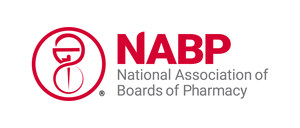Illegal Online Sellers Most Frequent Distributors of Counterfeit Drugs, Reports NABP
.Pharmacy gTLD and Consumer Education Key in Protecting Public Health
MOUNT PROSPECT, Ill., April 25, 2014 /PRNewswire-USNewswire/ -- The National Association of Boards of Pharmacy® (NABP®) today issued a report stressing that illegal online drug sellers are the most frequent conduits of counterfeit drugs and pose a continued threat to global public health. As detailed in the Internet Drug Outlet Identification Program Progress Report for State and Federal Regulators: April 2014, most of these rogue Internet drug outlets sell prescription drug products directly to consumers without requiring a valid prescription. Further, many are distributing controlled substances, putting patients at a high risk for abuse and addiction, since they are receiving these drugs without legitimate medical care. To protect consumers, NABP and a global coalition of stakeholders are moving forward plans to launch the .pharmacy generic Top-Level Domain (gTLD). Further, the Association and its member state boards of pharmacy continue to encourage and work with federal regulators and other public and private entities to educate the public about the dangers of unapproved drugs and other risks of buying medications from rogue Internet drug sellers.
Pharmaceutical and health care products were one of the top five categories of counterfeit goods seized by United States officials in 2013, and many of these shipments were tied to illegal online drug sellers. The report issued today includes an overview of testimony presented at a February 27, 2014 Congressional hearing by public health, industry, regulatory, and academic leaders. A Food and Drug Administration spokesperson emphasized that when rogue sellers operate on the Internet, an added layer of complexity and more players are involved, expanding the criminal's ability to reach consumers. This complexity makes it easy for operators to hide behind the façade of the fake Internet site, never seeing their victims face to face, and also makes it difficult for cybercrime experts to track down these operations.
A US Government Accountability Office spokesperson indicated that the "proliferation and widespread patronage of rogue Internet pharmacies has prompted public officials to identify them as a continuing public health threat." To help protect consumers, Immigration and Customs Enforcement called for a three-prong approach focusing on "[p]ublic education, demand reduction, and global collaboration." Expert participants highlighted NABP's VIPPS® (Verified Internet Pharmacy Practice Sites) accreditation program and the .pharmacy gTLD initiative, among other efforts, as vital to educating patients about the risks of purchasing medications online and offering a means for finding safe Internet pharmacies.
NABP has entered contract negotiations with the Internet Corporation for Assigned Names and Numbers (ICANN) to own and operate the .pharmacy gTLD, which will be available only to legitimate online pharmacies and related entities located in the US or other countries. The Registry Agreement between the Association and ICANN will include a number of safeguards intended to protect consumers and the public health. Thus, consumers buying medications from .pharmacy websites will be able to trust that their medications are being dispensed by a licensed, legitimate Internet pharmacy.
Findings on the more than 10,750 Internet drug outlets reviewed by NABP are also presented in the report released today. Nearly 97% of the sites reviewed operate out of compliance with US pharmacy laws and practice standards and those of many other developed countries, and are listed as Not Recommended on NABP's consumer protection website, www.AWARErx.org. The 10,392 Internet drug outlets currently listed as Not Recommended are characterized as follows:
- 5,102 (49%) offer foreign or non-FDA-approved drugs
- 9,164 (88%) do not require a valid prescription and 1,254 (12%) dispense controlled substances
- 2,426 (23%) have a physical address located outside of the US, and most (62%) rogue sites post no address whatsoever
- 1,668 (16%) do not have secure sites, exposing customers to financial fraud and identity theft
For the full report with detailed findings on the characteristics of rogue websites, visit www.AWARErx.org/get-informed/safe-acquisition/not-recommended-sites.
To find the safest sources for purchasing medicine online, consumers are encouraged to look for the VIPPS Seal on an accredited site and check NABP's list of accredited sites on its consumer protection website, www.AWARErx.org.
NABP is the independent, international, and impartial Association that assists its state member boards and jurisdictions for the purpose of protecting the public health.
SOURCE National Association of Boards of Pharmacy
WANT YOUR COMPANY'S NEWS FEATURED ON PRNEWSWIRE.COM?
Newsrooms &
Influencers
Digital Media
Outlets
Journalists
Opted In





Share this article